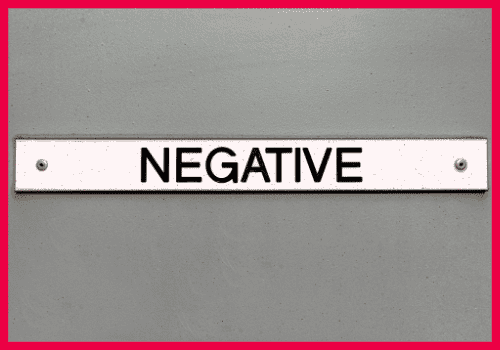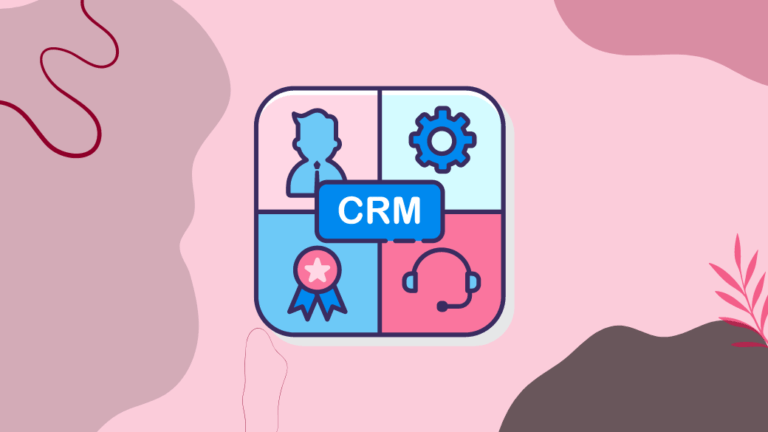6 Common PPC Mistakes (You’re Probably Making Them)
Avoid these six common mistakes and you’ll see a noticeable improvement in your PPC campaigns.

by Chris Latham

You have just invested a significant amount of your hard-earned money into a PPC ads (pay-per-click advertising) campaign, only to see that it is not delivering the results you had hoped for. You sit back, anxiously waiting for conversions or, at the very least, impressions, but nothing seems to happen.
You start to wonder what went wrong – did you choose the wrong keywords? Did your ads lack clarity or appeal? As the days pass without any visible progress, you feel frustrated and even more stressed out about how wasteful this whole experience has been.
In the end, you know that you were right about one thing: your money was wasted on a poorly optimized PPC campaign. There are many different ways to mess up your PPC campaigns, and in this article, I’ll outline five of the most common ones.
By avoiding these common mistakes, you’ll be able to improve your campaigns and see better results.

1. Not matching keywords to your ad copy
When you set up your PPC campaign, it’s essential that you match your keywords to your ad copy. If you don’t, you’ll likely find that your campaign is not as effective as it could be.
Why? Because when someone searches on Google using specific keywords, they are looking for information relevant to those keywords. If your ad copy is not relevant to the keywords used, they are not likely to click on your ad.
To avoid this mistake, take some time to brainstorm a list of potential keywords for your campaign and then craft your ads around those keywords.
Make sure that your PPC ad is clear, concise, and relevant to your targeting keywords. Remember, this may take some trial and error to get right, but it will be worth it in the end.

2. Not using negative keywords list efficiently
A negative keyword list is a list of keywords you don’t want your ad to appear for. For example, if you’re selling women’s shoes, you might add “men” to your negative keyword list so that your ad doesn’t show up when someone searches for “men’s shoes.”
Not using negative keyword lists efficiently can be a costly mistake. It can cause your ad to appear for irrelevant searches. This wastes your ad budget and decreases the chances that someone will actually click on your ad.
To avoid this mistake, take some time to create a comprehensive negative keyword list for your campaign. Think about all of the different ways that someone might search for your product or service, and make sure that you add any irrelevant keywords to your list.
Doing this will help to ensure that your ad only shows up for relevant searches.

3. Not having specific goals
When you create a PPC campaign, it’s crucial that you have specific goals in mind. Without clear goals, it is difficult to ensure that you are reaching the right audience and measure whether or not the campaign is successful.
Some things to consider when setting goals for your PPC campaign include
- What you want to achieve with your campaign
- What are the most important metrics in my business?
- How much ad spend you’re willing to spend each day?
- What action do I want visitors to take when on my site?
- What time frame you’re working with?
- What is your target market?
- What is your customer lifetime value?
The key is to make sure that your Google ads campaigns have clearly defined goals and an appropriate strategy for reaching them. This helps ensure that you’re not wasting money and time on a flawed campaign that isn’t delivering results.

4. Not tracking goals
Once you’ve set specific goals for your PPC campaign, it’s vital that you track those goals. Tracking your Google ads campaign can be an important part of ensuring that you’re spending your money wisely and getting good results from your ads.
Without tracking your progress and goals, it can be challenging to know what’s working and what isn’t. This can leave you at a loss when you try to understand why your conversions are low or why the traffic to your website just isn’t converting into sales.
With accurate tracking in place, you’ll have a better sense of where you should focus your efforts and where changes may need to be made.
So if you want to avoid wasting your advertising dollars on low-converting ads or campaigns that aren’t having the desired impact. You will want to track your goals carefully and keep tabs on your PPC campaign performance.
There are several different ways to track your PPC goals:
- Google Analytics: Google Analytics is a free tool that can track your PPC goals. Simply create a goal in Google Analytics and then use the tracking code to add it to your website. Once you’ve done this, you’ll see how many people visit your site, how long they stay, and what actions they take.
- Call Tracking: Call tracking allows you to track phone calls made to your business as a result of your PPC campaigns. This is a great way to track leads and sales generated from your campaign.
- Conversion Tracking: Conversion tracking allows you to track how many people take a specific action on your website, such as filling out a form or making a purchase. This is a great way to track your campaign’s success and see which keywords are driving the most conversions.
With diligent monitoring and adjustment, you’ll get more out of every dollar you spend on advertising.
To avoid this classic PPC mistake, you will want to properly have your analytics and tracking set up. This will help you understand what is working and what needs to be changed to have a successful campaign.
Book your free consultation if you need assistance setting it up or ensuring that everything is linked.

5. Not optimizing your landing page
Your landing page is the page on your website that people will land on after clicking your ad. It’s essential that this page is optimized so that visitors take the action you want them to, whether making a purchase, signing up for a newsletter, or filling out a form.
Many businesses simply direct visitors to their homepage when they click on one of your ads, without thinking about how well that page will convert and retain those visitors.
Not optimizing your landing pages means that you could be throwing away vast amounts of money and losing out on valuable leads and clicks.
Suppose your landing page isn’t well-designed or optimized for conversions. You’ll likely see a high bounce rate (the percentage of people who leave your site after viewing only one page) and/or a low conversion rate (the number of people who take the desired action).
To avoid losing out on potential conversions, it’s important to develop a landing page tailored specifically to your target audience’s needs and interests. You should have a clear call to action and use engaging content, visuals, and forms to draw in potential customers.
You should also pay close attention to site speed and load times, as slow-loading pages can lead to high bounce rates and low conversion rates.
Overall, investing time and effort into optimizing your landing pages can help ensure that you get the best return on investment from your marketing efforts.

6. Not paying attention to quality score
Paying attention to your quality score is absolutely essential when running a Google PPC campaign. Quality score is a metric that Google uses to determine how relevant and useful your ads are to users.
The higher your quality score, the more likely your ad is to be shown to users, and the less you will have to pay per click, putting you one step closer to potential customers.
In addition, having a strong quality score can give your ad campaigns more momentum and help you get better results than those with lower scores.
However, one of the biggest dangers of not paying attention to your quality score is that you could end up wasting your money. Without maintaining a high-quality score, your ad placement might not be as strategic or targeted as it could be. This will lead to higher costs and fewer conversions overall.
Additionally, lowering your quality score may cause the competition to surpass you, allowing them to take over your position in the rankings and leaving you in the dust.
Given all this information, it is clear that staying on top of your quality score should be one of your top priorities when running a Google PPC campaign.
Suppose you want to succeed and stay competitive in today’s digital landscape. In that case, you need to make sure that every aspect of your ad strategy is working at its best potential at all times. By doing so, you will ensure that your campaigns are as successful as possible, giving you the best chance of generating leads and conversions.
Conclusion
In order to make the most out of your Google ads campaigns, it’s important to avoid these five common PPC mistakes. By avoiding these mistakes, you’ll be able to create successful and profitable campaigns that generate the results you’re looking for.
If you’re not sure how to avoid these mistakes or need help setting up your tracking, we offer a free consultation to help you get started. Contact us today to get started!






